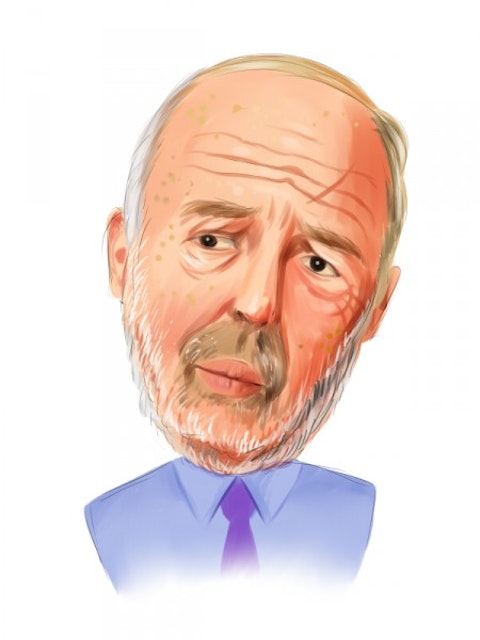Renaissance Technologies has had one of the most successful histories of any hedge fund tracked by Insider Monkey. Because of the fund’s success and its very high fees, founder Jim Simons has built a multi-billion dollar fortune. Here are three trends we noticed in Renaissance’s recent activity:
Out with the new, in with the old. The first thing that stands out about Simons’ latest 13F filing, which reveals positions the billionaire held at the end of the third quarter, is his decision close out his positions in Apple (NASDAQ:AAPL), Microsoft (NASDAQ:MSFT) and Broadcom (NASDAQ:BRCM). Apple and Broadcom, which supplies chips for the iPad and iPhone, have seen their share prices underperform in 2013. Microsoft, on the other hand, has not; it’s stock is up more than 40% year-to-date.

Judging by his moves out of these stalwarts, and into older-school names like General Electric (NYSE:GE) and Exxon Mobil (NYSE:XOM), it’s quite possible he’s not as excited about the tech sector as he once was. Remember, Simons is a man who had Apple and Microsoft as the top two stocks in his equity portfolio as recent as the second quarter of 2012, so it’s not like he’s always felt this way. Exxon, GE and Disney, for that matter, all issue fairly attractive dividends and aren’t overly expensive.
McDonald’s, supersized. McDonald’s (NYSE:MCD), meanwhile, was Renaissance Technologies’ No. 1 stock pick at the end of Q2 and it is again at the end of Q3. Simons actually upped his stake in the quick service restaurant behemoth by 17% last quarter and now holds more than $700 million worth of its stock. Shares of Mickey D’s have been stagnant over the past six months, but they still pay a dividend yield of 3.3% at a reasonable payout ratio, and offer mildly exciting growth prospects.
One major risk to McDonald’s is the emergence of fast casual dining options in the American and overseas markets. Chains like Chipotle and Five Guys offer consumers a similar eating environment with food that’s of a slightly higher quality, and in some cases, comparable in price to higher-end dishes available at traditional fast food restaurants.
On the plus side, and this is something that Simons is likely bullish on, McDonald’s is very well positioned to combat these competitors, particularly with its line McCafe drinks, ‘Mighty’ buffalo wings, premium salad line, and its expansive line of premium chicken sandwiches. The company beat Wall Street’s earnings estimates last quarter after missing them in Q2, so we’ll be watching Q4 data very closely.
This may make him a biotech bear. Lastly, a noticeable trend in Simons’ latest filing is possible bearishness on two fairly major biotech names: Celgene (NASDAQ:CELG) and Biogen (NASDAQ:BIIB). Now, there are many reasons why a hedge fund manager would choose to sell shares of his or her stock, and Simons’ sales in Celgene and Biogen didn’t close out his positions entirely, but they’re curious nonetheless. He cut his stake in Celgene, an immune-inflammatory biotech giant, by 25%, and he cut his holdings of neurodegenerative/autoimmune biotech Biogen by 37%. Both stocks have returned at least 60% year-to-date, so profit-taking is a reasonable explanation for the moves.
Disclosure: none





